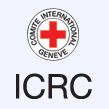
International Committee of the Red Cross (ICRC)
Comité international de la Croix-Rouge (CICR)
Comité Internacional de la Cruz Roja (CICR)
Internationales Komitee vom Roten Kreuz (IKRK)
Search Open Yearbook
This information is part of the Open Yearbook, a free service of UIA's subscription-based Yearbook of International Organizations (YBIO). It includes profiles of non-profit organizations working worldwide in all fields of activity. The information contained in the profiles and search functionality of this free service are limited.
The full-featured Yearbook of International Organizations (YBIO) includes over 72,500 organization profiles, additional information in the profiles, sophisticated search functionality and data export. For more information about YBIO, please click here or contact us.
The UIA is a leading provider of information about international non-profit organizations. The aim of the Open Yearbook is to promote the activities of international non-governmental organizations (INGOs) and intergovernmental organizations (IGOs).
Contact Details
URL: http://www.icrc.org/
Founded
1863-02-17 Geneva Switzerland
History
17 Feb 1863, Geneva (Switzerland), following an appeal made by Henry Dunant for relief societies to be formed to care for the wounded in wartime that would be recognized and protected through and international agreement. In 1863, a charitable association known as 'Geneva Society for Public Welfare' set up a 5 member commission to consider Dunant's appeal. The commission founded the ICRC under its original name: International Committee for Relief of Wounded Soldiers -- Comité international de secours aux militaires blessés. Present name adopted 1875. Registered in accordance with Swiss Civil Code.
Its mandate to protect and assist the victims of armed conflict has been conferred on it by States through the four Geneva Conventions of 1949 - T-XT4927 - Geneva Convention for the Amelioration of the Condition of Wounded, Sick and Shipwrecked Members of Armed Forces at Sea, T-XT4928 - Geneva Convention Relative to the Treatment of Prisoners of War, T-XT4929 - Geneva Convention Relative to the Protection of Civilian Persons in Time of War and T-XT4999 - Geneva Convention on Torture -and their Additional Protocols of 1977 and 2005 - T-XT7760 - Protocol Additional to the Geneva Conventions of 12 August 1949 and Relating to the Protection of Victims of International Armed Conflicts (Protocol I), T-XT7761 - Protocol II Additional to the Four 1949 Geneva Conventions Relating to the Protection of Victims of Non-international Armed Conflicts and Protocol III additional to the Geneva Conventions of 12 August 1949, and relating to the Adoption of an Additional Distinctive Emblem (Protocol III), 8 December 2005, as well as T-XT1808 - Convention on Cluster Munitions (CCM) - successors to T-XT0164 - Convention for the Amelioration of the Condition of the Wounded in Armies in the Field, 1864 (Geneva convention). The ICRC's mandate and legal status set it apart both from intergovernmental agencies, such as UN organizations, and from non-governmental organizations (NGOs). In most of the countries in which it works, the ICRC has concluded headquarters agreements with the authorities. Through these agreements, which are subject to international law, the ICRC enjoys the privileges and immunities usually only granted to intergovernmental organizations, such as immunity from legal process, which protects it from administrative and judicial proceedings, and inviolability of its premises, archives and other documents. The organization has concluded such an agreement with Switzerland, thus guaranteeing its independence and freedom of action from the Swiss government.
Aims
Protect and assist civilian and military victims of armed conflicts and internal disturbances on a strictly neutral and impartial basis.
Events
2024-04-23 | Tokyo, Japan – Humanitarian Congress Tokyo91 past events available with paid subscription only.
Activities
Available with paid subscription only.Structure
Assembly (supreme governing body) and Assembly Council (subsidiary body of the Assembly), composed of 5 members elected by the Assembly; both are chaired by ICRC President. Director (executive body). Presidency: President; 2 Vice-Presidents. Offices in 80 countries.
Languages
Available with paid subscription only.Staff
Available with paid subscription only.Finance
Available with paid subscription only.Consultative Status
Available with paid subscription only.Relations with Inter-Governmental Organizations
Available with paid subscription only.Relations with Non-Governmental Organizations
Available with paid subscription only.Publications
Available with paid subscription only.Members
Available with paid subscription only.Type I Classification
Available with paid subscription only.Type II Classification
Available with paid subscription only.Subjects *
Available with paid subscription only.UN Sustainable Development Goals **
UIA Org ID
XF1623
Last News
2020
** UN SDGs are linked to the subject classification.
← return to your search page to find additional profiles.
UIA allows users to access and make use of the information contained in its Databases for the user’s internal use and evaluation purposes only. A user may not re-package, compile, re-distribute or re-use any or all of the UIA Databases or the data* contained therein without prior permission from the UIA.
Data from database resources may not be extracted or downloaded in bulk using automated scripts or other external software tools not provided within the database resources themselves. If your research project or use of a database resource will involve the extraction of large amounts of text or data from a database resource, please contact us for a customized solution.
UIA reserves the right to block access for abusive use of the Database.
* Data shall mean any data and information available in the Database including but not limited to: raw data, numbers, images, names and contact information, logos, text, keywords, and links.